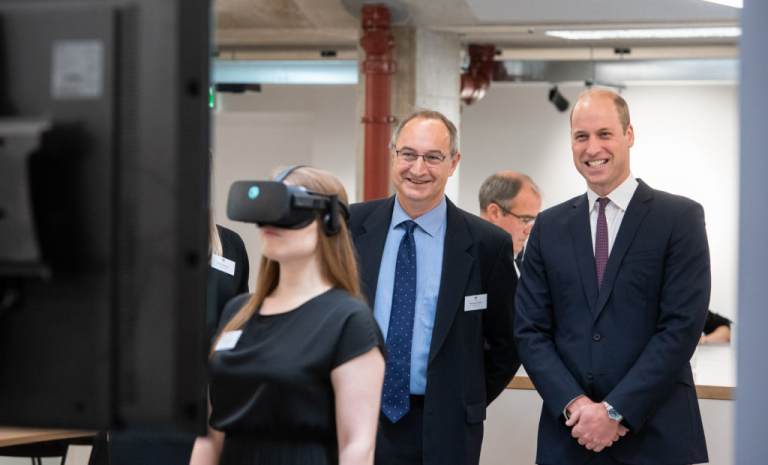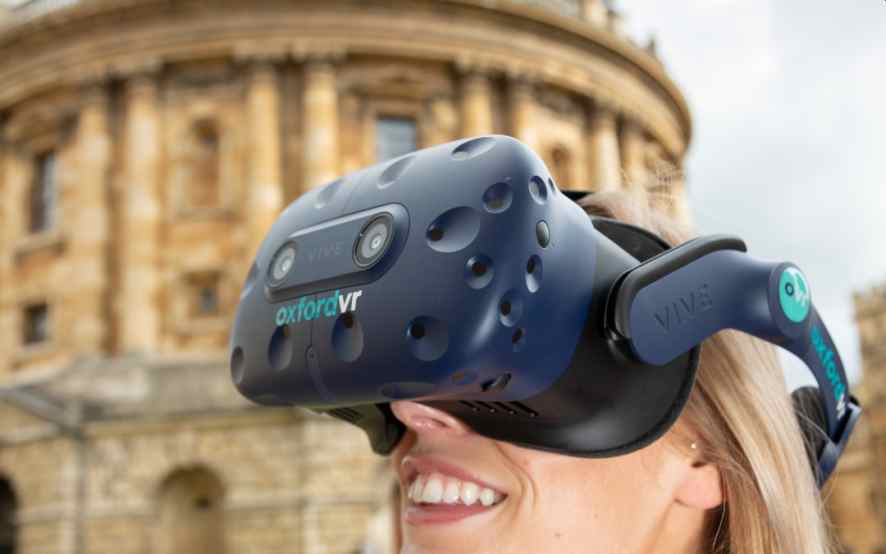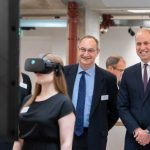Oxford VR raises $12.5M Series A funding to transform mental health for millions with VR therapy

Behavioral health disorders are on the rise in every country around the world and will cost the global economy $16 trillion by 2030. Over 26 million Americans with a behavioral health issue go untreated, according to data from Mental Health America 2020. There are major unmet needs in behavioral health care, including access challenges, poor outcomes, the high cost of care, low patient engagement rates and a shortage of skilled clinicians. Oxford VR is a new virtual reality startup on a mission to deliver evidence-based psychological treatments using state-of-the-art immersive technology.
Founded in 2017, Oxford VR is a spinout from Oxford University’s Department of Psychiatry and builds on two decades of research by Professor Daniel Freeman investigating VR’s potential to create powerful, automated psychological treatments that revolutionize the way people experience therapy.
Just last week, Oxford VR announced its secured $12.5 million in Series A financing to further its research and development into VR-based therapy programs and accelerate its expansion into U.S. market, and to continue expanding its treatment pipeline into conditions such as anxiety, depression and post-traumatic stress disorder. The round was led by Optum Ventures and supported by Luminous Ventures. Also participating in this investment round are existing investors including Oxford Sciences Innovation, Oxford University Innovation and GT Healthcare Capital Partners.
Oxford VR’s first clinical trial for fear of heights, which was published in The Lancet Psychiatry, shows how automated VR therapy can produce large clinical benefits. Results achieved were significantly better than expected, with the best psychological intervention delivered face-to-face by a therapist. This landmark trial also demonstrated automated VR therapy’s capacity to transform behavioral health care by helping overloaded providers expand access and standardize clinical excellence, ensuring adherence to treatment protocols.

CEO Barnaby Perks said: “We are tremendously excited to close this investment round and to be working with Optum Ventures to drive our next level of growth. We would not be at this exciting tipping point without the collective efforts of the team at OVR, in particular Katie Bedborough, our CFO & COO. Together with Optum Ventures and Luminous Ventures, and with the continued support from our existing investors, we can expand our clinical leadership footprint and accelerate our pipeline of automated VR therapy treatments.”
Behavioral health disorders are on the rise in every country around the world and will cost the global economy $16 trillion by 2030.[iii] There are major unmet needs in behavioral health care, including access challenges, poor outcomes, the high cost of care, low patient engagement rates and a shortage of skilled clinicians. This investment recognizes the significant potential of Oxford VR’s automated VR therapy to help address these challenges, and how the company is already delivering automated VR therapy in a real-world setting in the UK’s NHS.
Along with this investment, Ash Patel, Principal at Optum Ventures is joining the Oxford VR Board of Directors. “Oxford VR has taken a technology-led approach to create evidence-based solutions that will make treatment more accessible to patients who need it,” said Patel. “We believe Oxford VR’s solutions will benefit those who need access to high quality, effective cognitive behavioral therapy.”
In addition to providing VR therapy to NHS patients, Oxford VR is participating in several trials. In the UK, the NHS-funded gameChange project is the first large-scale multi-site trial to use VR therapy to treat patients with serious and complex behavioral health conditions.
Izzy Fox, Principal of Luminous Ventures said “Oxford VR has taken world-class science from Oxford University and applied cutting-edge immersive technology to create a transformational mental health solution which can deliver significant value for overloaded healthcare programs globally. Immersive therapy is accessible, engaging and effective, and has demonstrated exceptional clinical outcomes and we are thrilled to be partnering with the Oxford VR team.”
In Asia, Oxford VR has partnered with AXA Hong Kong and The Chinese University of Hong Kong (CUHK) in a first-of-its-kind pilot to test VR’s potential to support better mental health outcomes. In the US, OVR has established a strategic partnership with the National Mental Health Innovation Centre (NMHIC) where it is running multiple pilots using VR therapy treatment programmes to advance mental health outcomes in the US.
Speaking about Oxford VR, Matt Vogl Executive Director and Co-Founder at US National Mental Health Innovation Center said “Oxford VR’s immersive therapy is backed by research, is scalable and has the potential for significant clinical impact in the US.”




